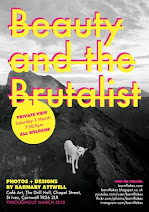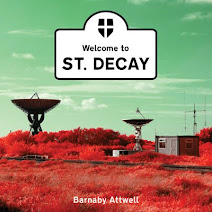Overheard:
"I've just been to see the satanist"
"Oh the neo-Nazi just popped up, I want to grab him before
anyone else does"
Originating in Denmark, natch, The Human Library is an organisation dedicated to challenging prejudices through conversation. The concept is simple: people ('books'), mainly those who society as a whole has prejudices against, are on loan to 'readers' for twenty minutes, who get to ask questions and listen to the book's experiences. On a board is a series of labels – satanist, bi-polar, Muslim, homeless, autism, HIV, alcoholic, etc – and a reader picks whichever human book interests them, and they both go and sit on a sofa to talk about the subject.
I was a tad apprehensive beforehand, but the whole experience was relaxing and enlightening. As I look after an autistic young man, I went for the autistic book, and he was informative and chatty. H went for a reformed fascist and a neo-Nazi. The satanist was constantly in demand and booked out.
I love the idea. Whether the people who it's perhaps aimed at – those with prejudices – would be open-minded enough to attend such an event is questionable, but it's enlightening for both sides: the books get to express their experiences, and the readers get to hopefully understand a marginalised section of society.
We ran with the concept – why stop at prejudiced members of society? There could be a series of books, where experts expound on their chosen field. I know what you're thinking – isn't this what the internet is all about? Yes, true, but actually talking to someone face to face about a subject is far more enlightening and interactive than watching a YouTube video about it.
Interestingly, that week H had been on a course about restorative justice, a process where the victims of crime embark on a series of dialogue with their perpetrator. Having the victim and perpetrator talking face to face can give the victim closure and hopefully enlightens and changes the perpetrator, making them understand the damage they have done. It's a known fact that prison tends not to reform criminals; restorative justice can repair harm, build communities and promote understanding.
humanlibrary.org
restorative justice council
That evening we listened to:
Everyday I Write the Book by Elvis Costello & The Attractions
Previously on Barnflakes:
The Museum of Everyone
A Life of Art
Friday, May 11, 2018
Subscribe to:
Post Comments
(
Atom
)













No comments :
Post a Comment